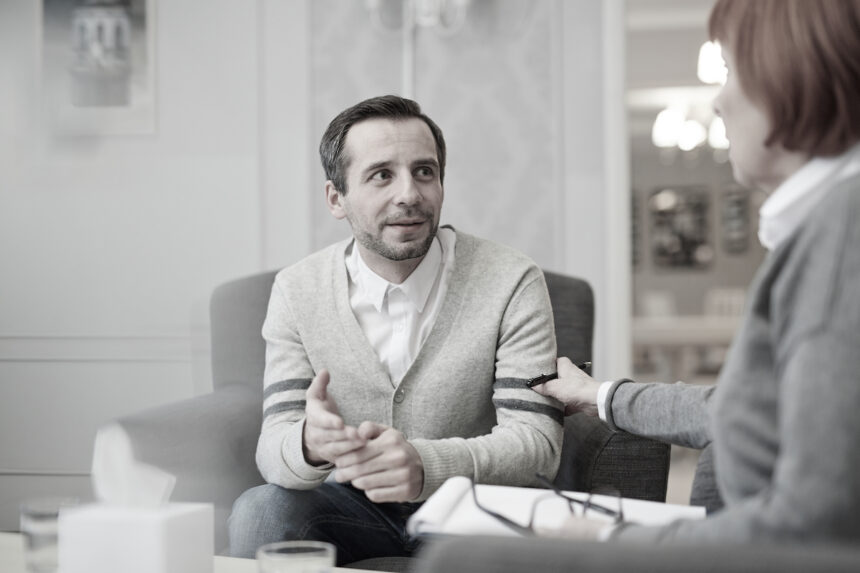There are some discrepancy between what men need and what a men group needs, sometimes because of the groups’ origin. Some of these men’s groups are formed as subsidiaries of women’s organizations or by professionals (mostly non-men) who believe that men need more education. As a result, you often see phrases such as “How to build empathy,” “Help men understand themselves,” and “Building skills to resolve conflicts in intimate relationships.”
These organizations open up seminars, but usually, attendance is poor, unless it is stipulated by court judges as a “must-join.” The organizers often blame men for their lack of willingness to “learn.” Some even attribute men’s no-show to selfishness and emotionlessness. What they don’t know is that the event they are hosting does not tackle the main problem men are facing in family court. In fact, they even address a wrong concern. It’s ironic because these organizations are supposed to be “men’s organizations” and represent a group that “understands men most.”
How do a man enhance a men group?
Men might feel frustrated by the lack of effective support from men’s organizations, and it’s important to address these concerns in a constructive way. Here are a few suggestions:
Connect with other men:
Sometimes the best support comes from other men who have gone through similar experiences. Look for local or online groups where you can connect with other men who are dealing with divorce, custody battles, or other family court issues.
Speak up and advocate for what you need:
If the organizations you’ve encountered are not addressing the issues that are most important to you, let them know. Reach out to the organizers and express your concerns, and suggest alternative topics or approaches that would be more helpful.
Seek out other resources not affiliated to big groups:
Big organizations tend to host those kinds of ineffective men’s forums. While these men’s organizations may not always provide the support and education you need, there are likely other more non-affiliated resources available. Look for books, podcasts, online forums, or support groups that focus on the specific issues you’re facing. You can also consider seeking professional one-on-one support. It may be helpful to seek out a therapist or counselor who is not influenced by these men’s groups and specializes in men’s issues.
What does a divorcing father need from a mens group or men group?
Divorcing fathers may have a variety of needs during the divorce process and in the aftermath of a separation or divorce. Some possible areas where a father’s organization or men’s organization could provide support include:
Legal guidance and advocacy truly for fathers:
Divorcing fathers may need assistance navigating the legal system, understanding their rights and responsibilities, and advocating for themselves in court. A father’s organization or men’s organization may be able to provide resources, referrals, or even direct legal assistance. The legal referrals they provide should be carefully filtered to make sure the professionals are pro-fathers and acquainted with the unfair situation fathers are facing in family court.
Emotional support for rebuilding, not comfort:
Divorce and separation can be emotionally challenging for fathers, who may be struggling with grief, anger, guilt, or other difficult feelings. A father’s organization or men’s organization could provide a safe space for fathers to share their experiences, connect with others who understand what they’re going through, and receive emotional support. It’s important to note that the emotional support is to help fathers rebuild their life, not to comfort them for their loss – which is sometimes quite the opposite of what women need.
Co-parenting resources to help fathers design fun visitation time:
Divorcing fathers who share custody of their children may need help developing co-parenting plans, managing conflict with their ex-partner, and maintaining a positive relationship with their children. A father’s organization or men’s organization could provide education, resources, and support around these issues. One area which is very important for visiting fathers is resources for making visitation time “fun” – such as new movies, new toys, new talking points, and new jokes that fathers can learn before visiting their lovely kids.
Financial guidance that helps fathers:
Divorce can have significant financial implications, and fathers may need help understanding their financial rights and responsibilities, managing debt, and planning for their financial future. A father’s organization or men’s organization could provide education, referrals to financial professionals, or even direct financial assistance.
Health and wellness for lonely men:
Divorcing fathers may need support in maintaining their physical and mental health during a difficult time. A father’s organization or men’s organization could provide resources, referrals, or support around issues such as stress management, self-care, and healthy coping strategies. It’s especially crucial since men tend to isolate themselves inside their homes during difficult times. Some can be isolated for years, if not decades. Divorced men need help in developing a solitary life.


